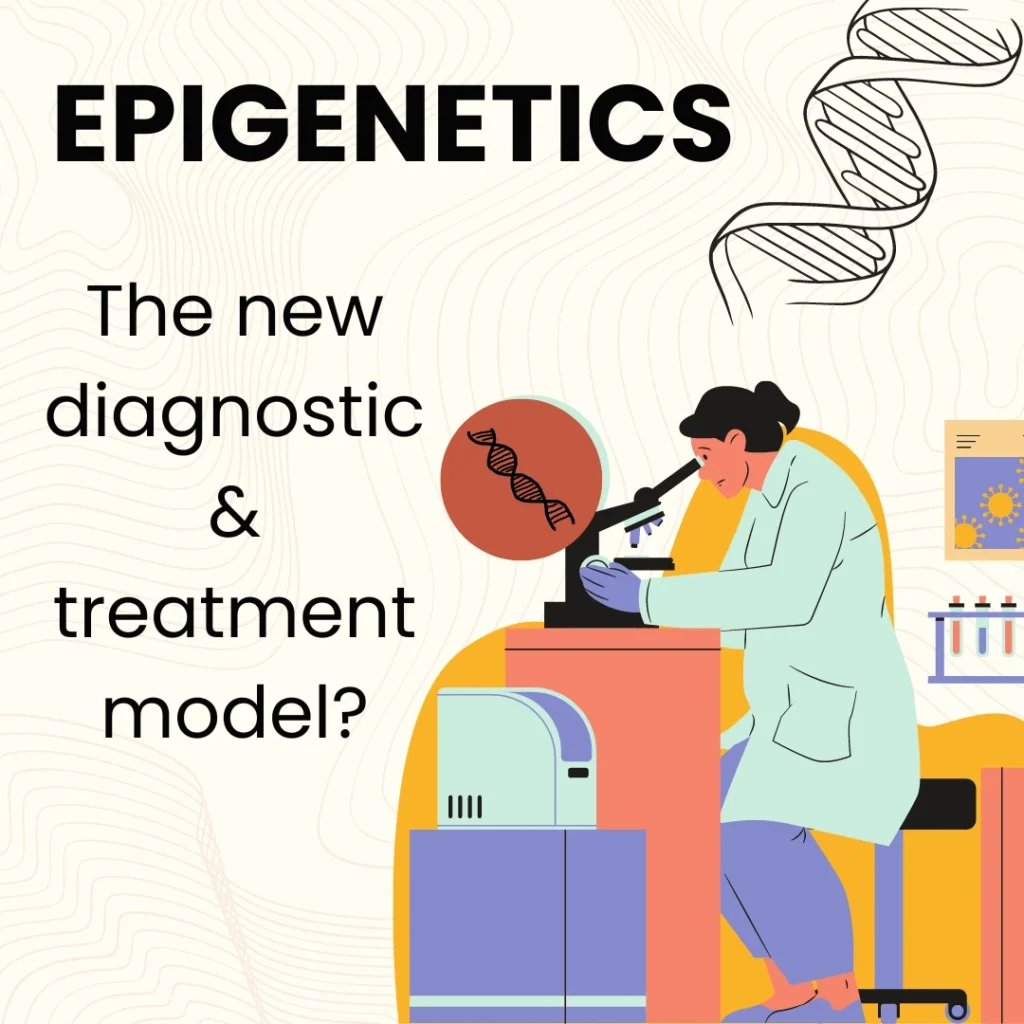Key takeaways: Epigenetics, or the change of gene expression by external factors, plays a role in
the onset of mesothelioma. While the exact mechanism hasn’t been identified yet, researchers
believe that asbestos fibers might contribute to the alteration of healthy epigenetic regulation.
New treatment strategies, especially for chemotherapy-resistant cases of mesothelioma, might
work to alter epigenetic expressions of genes that can slow cell growth or make the cells more
responsive to chemotherapy.

What is Epigenetics?
“Epigenetics” is a term that refers to the edits of DNA expression due to environmental factors.
DNA is wound around proteins called histones–histones control how tightly the DNA is
bunched up. Because DNA needs to be copied for daughter cells, and the enzymes and proteins
that copy DNA need DNA to be relatively loose for the copying process, histones control
whether or not these proteins and enzymes have “access” to certain genes. For example, if the
body is stressed (and has high levels of circulating adrenaline, cortisol, and norepinephrine), then
certain products or by-products of these hormones might bind to histones, either loosening or
tightening their hold on DNA strands. Certain genes might be expressed more, others might be
expressed less, and still others might not be expressed at all. Importantly, the actual sequence of
genes is unaffected; it’s just whether or not the genes are expressed. And, the effects of
epigenetics can be reversed or tweaked; histone position isn’t fixed, it’s affected by
external-to-the-body factors.
Epigenetics and Mesothelioma
Because the process of asbestos exposure to mesothelioma onset is one that has eluded scientists
and doctors, they are now turning to epigenetics for possible diagnostic and treatment options.
By recognizing asbestos as an epigenetic threat, it might lead to a.) more conclusive data about
how asbestos causes mesothelioma, and b.) how doctors can use epigenetic scores to diagnose
mesothelioma earlier.
Mesothelioma is associated with mutations in the genome (or entire genetic makeup) of pleural
cells. Because we’ve established that histones aid in the control of DNA expression, it’s fair to
assume that there are errors or mutations in the epigenetic regulation of DNA in these cells, too.
In the cells of mesothelioma tumors, epigenetic errors (which are the same errors that allow for
aggressive growth of these cells) can prevent the success of chemotherapy. Because
chemotherapy interrupts the normal cell cycle, and cells with epigenetic mutations don’t adhere
to normal cell cycle to begin with, it makes sense that chemotherapy doesn’t work in some
patients. New clinical trials using epigenetic modifications–because histones can be affected and
their effects reversed–might make chemotherapy more successful. In addition, these trials might
also be able to target histones and treat cancerous cells directly through differential gene
expression.
Diagnostics
In terms of diagnostics, there are a few epigenetic markers of mesothelioma. These can be used
in conjunction with blood tests, histological scores, and imaging techniques in order to more
quickly diagnose (and treat) mesothelioma. However, these diagnostic techniques are still
actively being studied and aren’t yet available for widespread use.
If you or a loved one has been diagnosed with an asbestos-related disease, please call
(800)-505-6000 for legal help. For more information, fill out the form on our Homepage.
Sources:
Al Aboud, N. M., Tupper, C., & Jialal, I. (2024). Genetics, Epigenetic Mechanism. In
StatPearls. StatPearls Publishing. http://www.ncbi.nlm.nih.gov/books/NBK532999/
Cheng, Y. Y., Rath, E. M., Linton, A., Yuen, M. L., Takahashi, K., & Lee, K. (2020). The
Current Understanding Of Asbestos-Induced Epigenetic Changes Associated With
Lung Cancer. Lung Cancer: Targets and Therapy, 11, 1–11.
https://doi.org/10.2147/LCTT.S186843
Vandermeers, F., Neelature Sriramareddy, S., Costa, C., Hubaux, R., Cosse, J.-P., &
Willems, L. (2013). The role of epigenetics in malignant pleural mesothelioma. Lung
Cancer, 81(3), 311–318. https://doi.org/10.1016/j.lungcan.2013.05.014